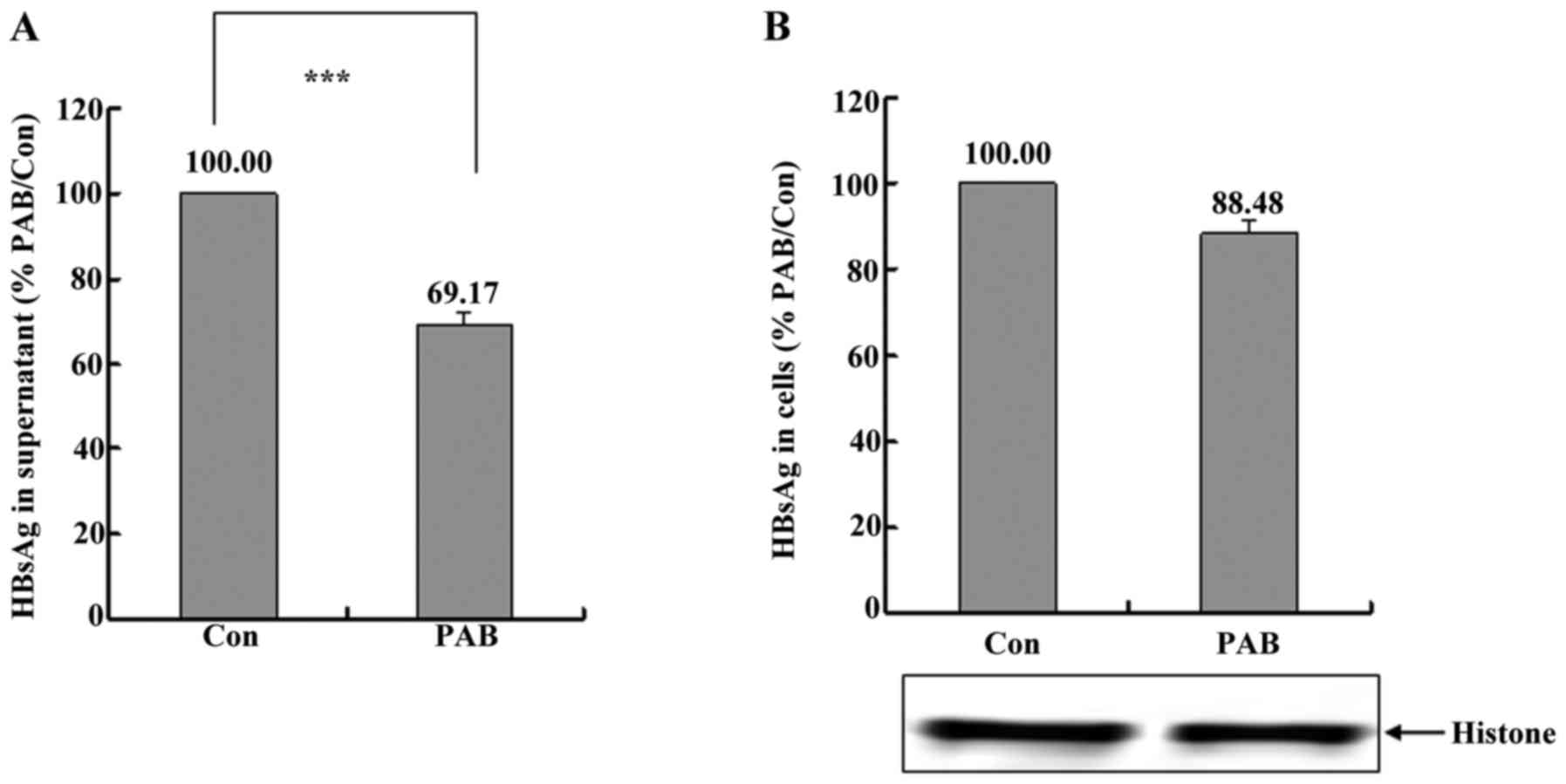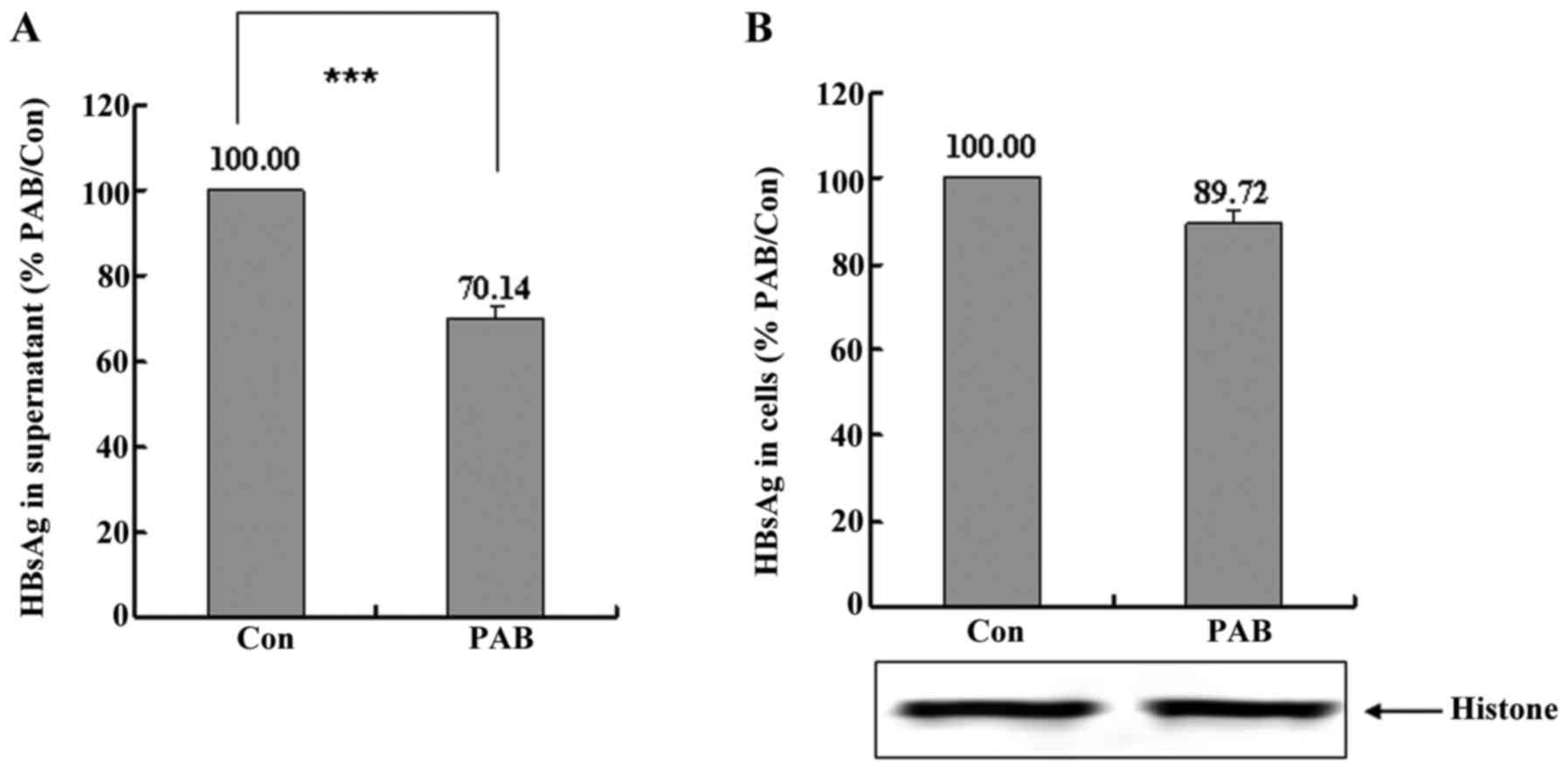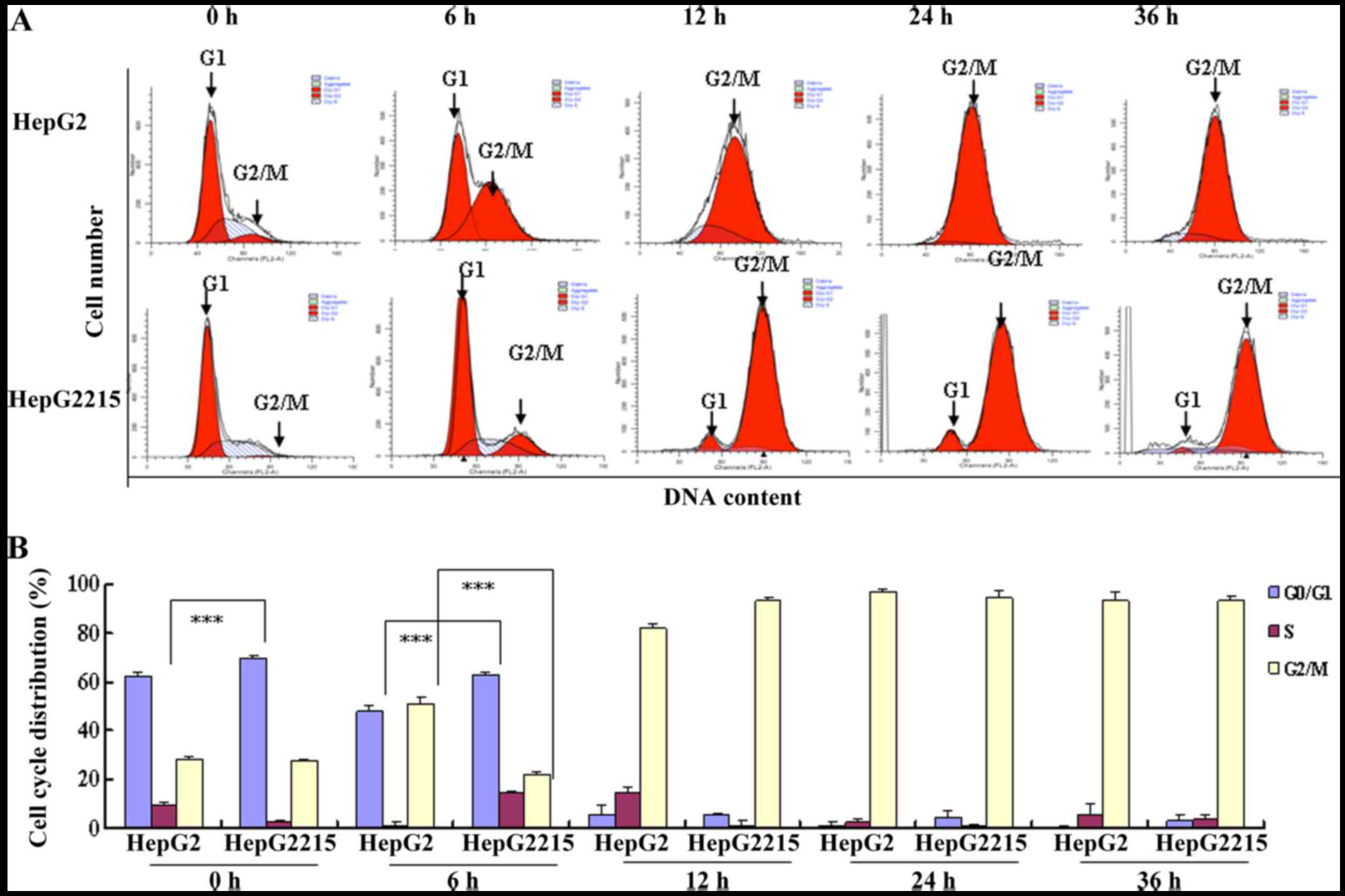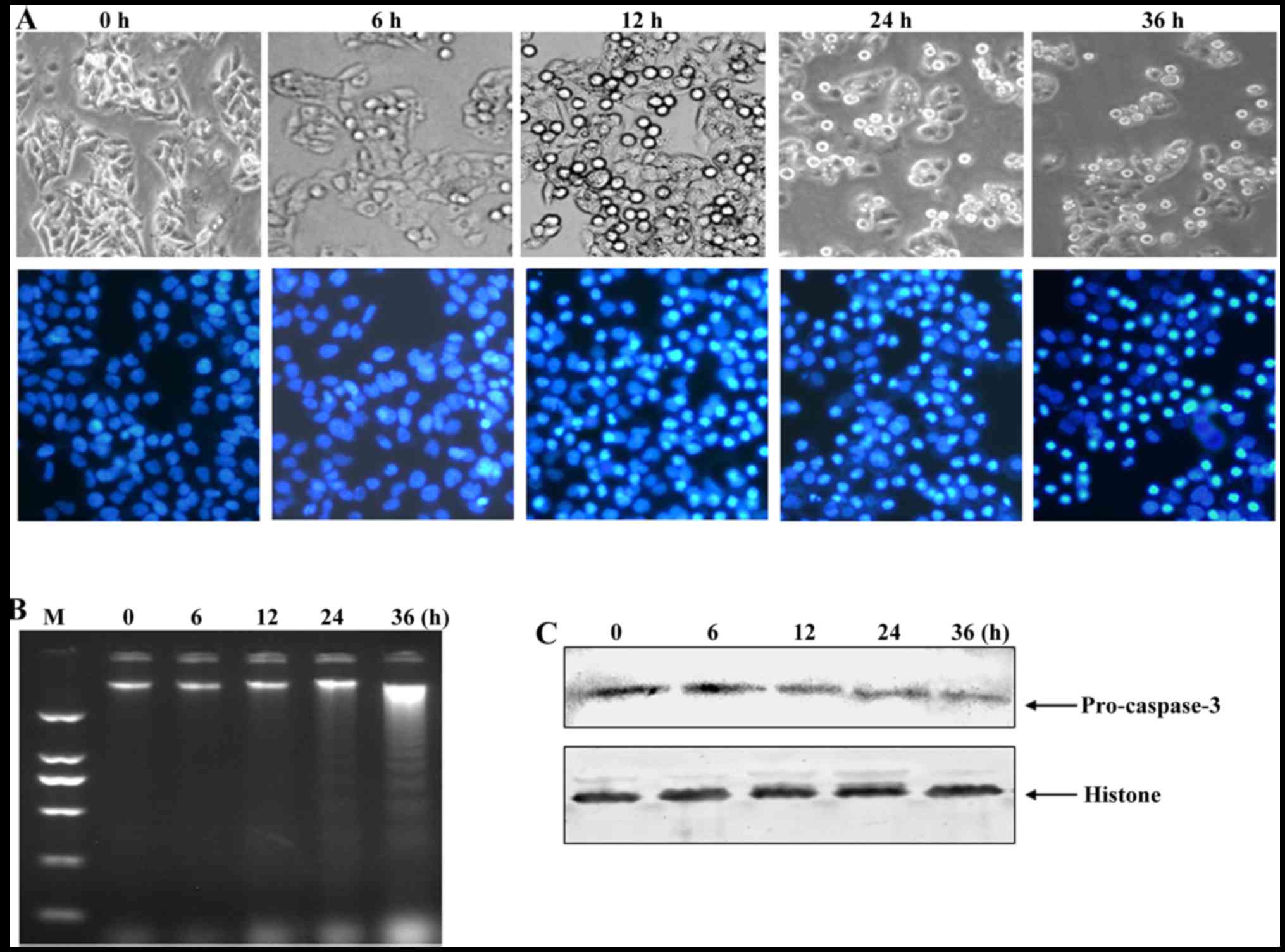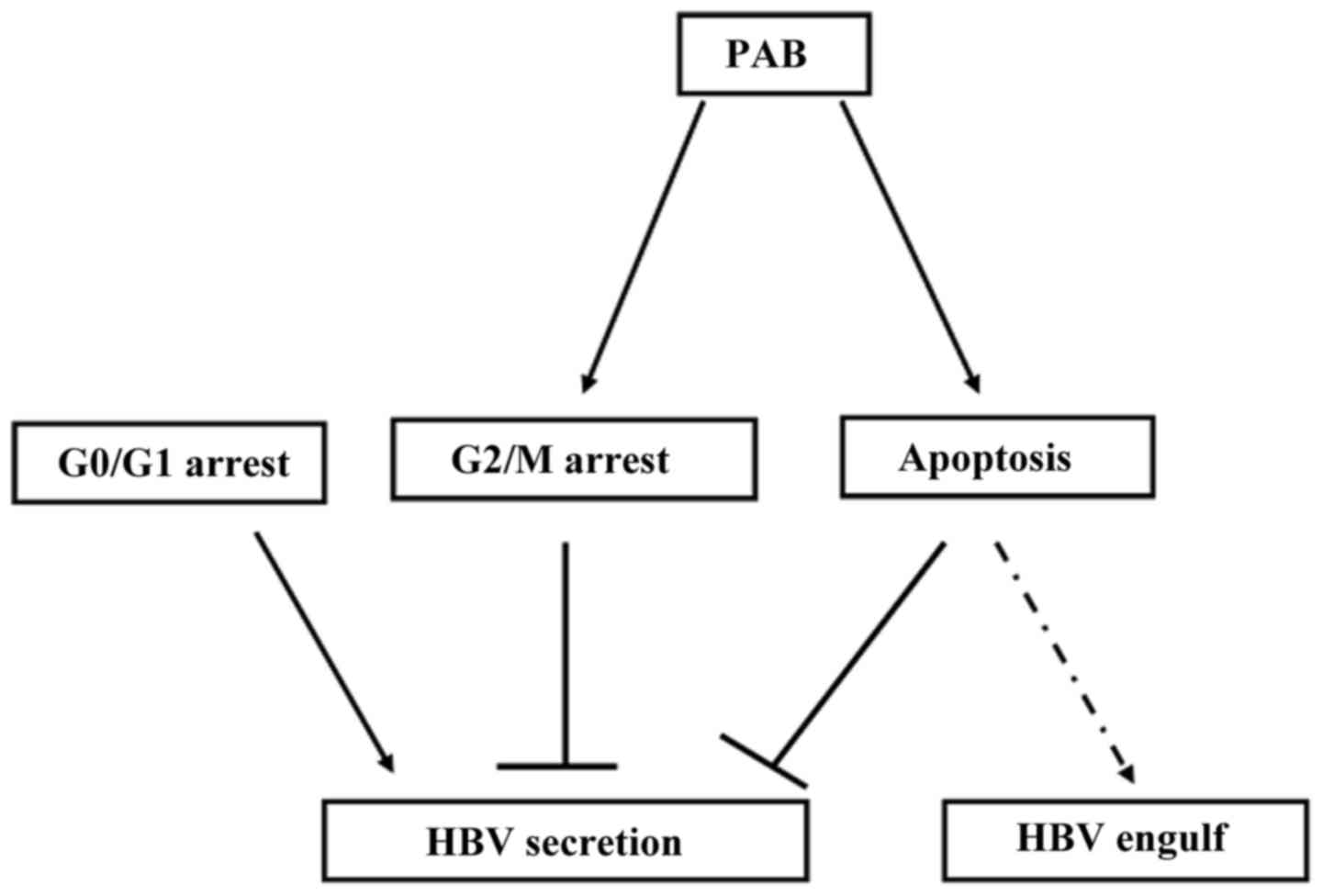|
1
|
Hadziyannis SJ, Tassopoulos NC, Heathcote
EJ, Chang TT, Kitis G, Rizzetto M, Marcellin P, Lim SG, Goodman Z,
Ma J, et al: Adefovir Dipivoxil 438 Study Group: Long-term therapy
with adefovir dipivoxil for HBeAg-negative chronic hepatitis B for
up to 5 years. Gastroenterology. 131:1743–1751. 2006. View Article : Google Scholar : PubMed/NCBI
|
|
2
|
Sangiovanni A, Del Ninno E, Fasani P, De
Fazio C, Ronchi G, Romeo R, Morabito A, De Franchis R and Colombo
M: Increased survival of cirrhotic patients with a hepatocellular
carcinoma detected during surveillance. Gastroenterology.
126:1005–1014. 2004. View Article : Google Scholar : PubMed/NCBI
|
|
3
|
Bruix J and Sherman M: Practice Guidelines
Committee, American Association for the Study of Liver Diseases:
Management of hepatocellular carcinoma. Hepatology. 42:1208–1236.
2005. View Article : Google Scholar : PubMed/NCBI
|
|
4
|
Sherman M: Recurrence of hepatocellular
carcinoma. N Engl J Med. 359:2045–2047. 2008. View Article : Google Scholar : PubMed/NCBI
|
|
5
|
Newman DJ, Cragg GM and Snader KM: Natural
products as sources of new drugs over the period 1981–2002. J Nat
Prod. 66:1022–1037. 2003. View Article : Google Scholar : PubMed/NCBI
|
|
6
|
Breinbauer R, Vetter IR and Waldmann H:
From protein domains to drug candidates-natural products as guiding
principles in the design and synthesis of compound libraries. Angew
Chem Int Ed Engl. 41:2879–2890. 2002. View Article : Google Scholar : PubMed/NCBI
|
|
7
|
Mann J: Natural products in cancer
chemotherapy: Past, present and future. Nat Rev Cancer. 2:143–148.
2002. View
Article : Google Scholar : PubMed/NCBI
|
|
8
|
Zhou BN, Ying BP, Song GQ, Chen ZX, Han J
and Yan YF: Pseudolaric acids from Pseudolarix kaempferi. Planta
Med. 47:35–38. 1983. View Article : Google Scholar : PubMed/NCBI
|
|
9
|
Gong X, Wang M, Tashiro S, Onodera S and
Ikejima T: Involvement of JNK-initiated p53 accumulation and
phosphorylation of p53 in pseudolaric acid B induced cell death.
Exp Mol Med. 38:428–434. 2006. View Article : Google Scholar : PubMed/NCBI
|
|
10
|
Gong XF, Wang MW, Tashiro S, Onodera S and
Ikejima T: Pseudolaric acid B induces apoptosis through p53 and
Bax/Bcl-2 pathways in human melanoma A375-S2 cells. Arch Pharm Res.
28:68–72. 2005. View Article : Google Scholar : PubMed/NCBI
|
|
11
|
Yu J, Li X, Tashiro S, Onodera S and
Ikejima T: Bcl-2 family proteins were involved in pseudolaric acid
B-induced autophagy in murine fibrosarcoma L929 cells. J Pharmacol
Sci. 107:295–302. 2008. View Article : Google Scholar : PubMed/NCBI
|
|
12
|
Yu JH, Cui Q, Jiang YY, Yang W, Tashiro S,
Onodera S and Ikejima T: Pseudolaric acid B induces apoptosis,
senescence, and mitotic arrest in human breast cancer MCF-7. Acta
Pharmacol Sin. 28:1975–1983. 2007. View Article : Google Scholar : PubMed/NCBI
|
|
13
|
Yu JH, Wang HJ, Li XR, Tashiro S, Onodera
S and Ikejima T: Protein tyrosine kinase, JNK, and ERK involvement
in pseudolaric acid B-induced apoptosis of human breast cancer
MCF-7 cells. Acta Pharmacol Sin. 29:1069–1076. 2008. View Article : Google Scholar : PubMed/NCBI
|
|
14
|
Ma G, Chong L, Li XC, Khan IA, Walker LA
and Khan SI: Selective inhibition of human leukemia cell growth and
induction of cell cycle arrest and apoptosis by pseudolaric acid B.
J Cancer Res Clin Oncol. 136:1333–1340. 2010. View Article : Google Scholar : PubMed/NCBI
|
|
15
|
Xu R, Zhang X, Zhang W, Fang Y, Zheng S
and Yu XF: Association of human APOBEC3 cytidine deaminases with
the generation of hepatitis virus B × antigen mutants and
hepatocellular carcinoma. Hepatology. 46:1810–1820. 2007.
View Article : Google Scholar : PubMed/NCBI
|
|
16
|
Yu J, Zhang L, Ren P, Zhong T, Li Z, Wang
Z, Li J, Liu X, Zhao K, Zhang W, et al: Enterovirus 71 mediates
cell cycle arrest in S phase through non-structural protein 3D.
Cell Cycle. 14:425–436. 2015. View Article : Google Scholar : PubMed/NCBI
|
|
17
|
Sciorati C, Rigamonti E, Manfredi AA and
Rovere-Querini P: Cell death, clearance and immunity in the
skeletal muscle. Cell Death Differ. 23:927–937. 2016. View Article : Google Scholar : PubMed/NCBI
|
|
18
|
Khan M, Zheng B, Yi F, Rasul A, Gu Z, Li
T, Gao H, Qazi JI, Yang H and Ma T: Pseudolaric Acid B induces
caspase-dependent and caspase-independent apoptosis in u87
glioblastoma cells. Evid Based Complement Alternat Med.
2012:9575682012. View Article : Google Scholar : PubMed/NCBI
|
|
19
|
Wong VK, Chiu P, Chung SS, Chow LM, Zhao
YZ, Yang BB and Ko BC: Pseudolaric acid B, a novel
microtubule-destabilizing agent that circumvents multidrug
resistance phenotype and exhibits antitumor activity in vivo. Clin
Cancer Res. 11:6002–6011. 2005. View Article : Google Scholar : PubMed/NCBI
|
|
20
|
Sells MA, Chen ML and Acs G: Production of
hepatitis B virus particles in Hep G2 cells transfected with cloned
hepatitis B virus DNA. Proc Natl Acad Sci USA. 84:1005–1009. 1987.
View Article : Google Scholar : PubMed/NCBI
|
|
21
|
Ding XR, Yang J, Sun DC, Lou SK and Wang
SQ: Whole genome expression profiling of hepatitis B
virus-transfected cell line reveals the potential targets of
anti-HBV drugs. Pharmacogenomics J. 8:61–70. 2008. View Article : Google Scholar : PubMed/NCBI
|
|
22
|
Li GQ, Xu WZ, Wang JX, Deng WW, Li D and
Gu HX: Combination of small interfering RNA and lamivudine on
inhibition of human B virus replication in HepG2.2.15 cells. World
J Gastroenterol. 13:2324–2327. 2007. View Article : Google Scholar : PubMed/NCBI
|
|
23
|
Xin XM, Li GQ, Guan XR, Li D, Xu WZ, Jin
YY and Gu HX: Combination therapy of siRNAs mediates greater
suppression on hepatitis B virus cccDNA in HepG2.2.15 cell.
Hepatogastroenterology. 55:2178–2183. 2008.PubMed/NCBI
|
|
24
|
DeCaprio JA, Ludlow JW, Figge J, Shew JY,
Huang CM, Lee WH, Marsilio E, Paucha E and Livingston DM: SV40
large tumor antigen forms a specific complex with the product of
the retinoblastoma susceptibility gene. Cell. 54:275–283. 1988.
View Article : Google Scholar : PubMed/NCBI
|
|
25
|
Eckner R, Ewen ME, Newsome D, Gerdes M,
DeCaprio JA, Lawrence JB and Livingston DM: Molecular cloning and
functional analysis of the adenovirus E1A-associated 300-kD protein
(p300) reveals a protein with properties of a transcriptional
adaptor. Genes Dev. 8:869–884. 1994. View Article : Google Scholar : PubMed/NCBI
|
|
26
|
Howe JA, Mymryk JS, Egan C, Branton PE and
Bayley ST: Retinoblastoma growth suppressor and a 300-kDa protein
appear to regulate cellular DNA synthesis. Proc Natl Acad Sci USA.
87:5883–5887. 1990. View Article : Google Scholar : PubMed/NCBI
|
|
27
|
Werness BA, Levine AJ and Howley PM:
Association of human papillomavirus types 16 and 18 E6 proteins
with p53. Science. 248:76–79. 1990. View Article : Google Scholar : PubMed/NCBI
|
|
28
|
Flemington EK: Herpesvirus lytic
replication and the cell cycle: Arresting new developments. J
Virol. 75:4475–4481. 2001. View Article : Google Scholar : PubMed/NCBI
|
|
29
|
Goh WC, Rogel ME, Kinsey CM, Michael SF,
Fultz PN, Nowak MA, Hahn BH and Emerman M: HIV-1 Vpr increases
viral expression by manipulation of the cell cycle: A mechanism for
selection of Vpr in vivo. Nat Med. 4:65–71. 1998. View Article : Google Scholar : PubMed/NCBI
|
|
30
|
He J, Choe S, Walker R, Di Marzio P,
Morgan DO and Landau NR: Human immunodeficiency virus type 1 viral
protein R (Vpr) arrests cells in the G2 phase of the cell cycle by
inhibiting p34cdc2 activity. J Virol. 69:6705–6711. 1995.PubMed/NCBI
|
|
31
|
Dove B, Brooks G, Bicknell K, Wurm T and
Hiscox JA: Cell cycle perturbations induced by infection with the
coronavirus infectious bronchitis virus and their effect on virus
replication. J Virol. 80:4147–4156. 2006. View Article : Google Scholar : PubMed/NCBI
|
|
32
|
Li FQ, Tam JP and Liu DX: Cell cycle
arrest and apoptosis induced by the coronavirus infectious
bronchitis virus in the absence of p53. Virology. 365:435–445.
2007. View Article : Google Scholar : PubMed/NCBI
|
|
33
|
Wang T, Zhao R, Wu Y, Kong D, Zhang L, Wu
D, Li C, Zhang C, Yu Z and Jin X: Hepatitis B virus induces G1
phase arrest by regulating cell cycle genes in HepG2.2.15 cells.
Virol J. 8:2312011. View Article : Google Scholar : PubMed/NCBI
|
|
34
|
Tong YG, Zhang XW, Geng MY, Yue JM, Xin
XL, Tian F, Shen X, Tong LJ, Li MH, Zhang C, et al: Pseudolarix
acid B, a new tubulin-binding agent, inhibits angiogenesis by
interacting with a novel binding site on tubulin. Mol Pharmacol.
69:1226–1233. 2006. View Article : Google Scholar : PubMed/NCBI
|















